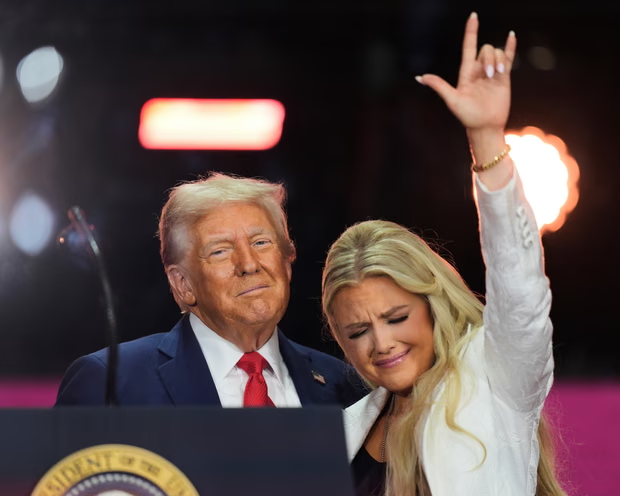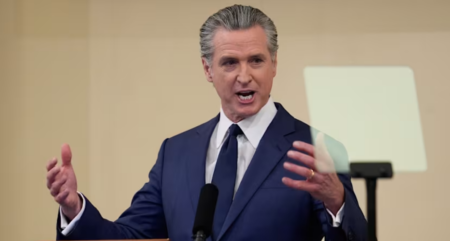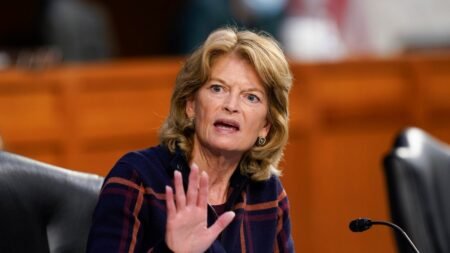President Donald Trump delivered a wide-ranging speech at the Charlie Kirk memorial in Alabama on Sunday, where he praised the slain conservative activist as a “martyr” while also using the moment to highlight political issues. Tens of thousands of people attended the gathering, which was both a farewell to Kirk and a platform for Trump to promote his agenda.
Kirk, a conservative organizer and founder of a national youth movement, was shot and killed on September 10 while speaking at a Utah university. His death shocked supporters across the country, and the memorial service drew prominent political figures and allies.
Trump described Kirk as a “great American hero” and said his life represented a fight for freedom. He called him a “martyr,” telling the audience that Kirk’s efforts would live on through those who continue his mission. The tone was emotional at times, but Trump often shifted to political subjects far beyond the purpose of the gathering.
Throughout his 45-minute address, Trump touched on several unrelated topics. He spoke about his administration’s use of federal agents in major cities, promised that law enforcement would be strengthened, and teased an announcement on autism research and policy that he said would come from the White House on Monday.
The president also sat alongside billionaire Elon Musk, once one of his most trusted advisers. Their presence together was striking, as the two had a public falling out months earlier. Musk, who had led Trump’s controversial Department of Government Efficiency, later broke with the White House over tax policy. Their handshake and quiet conversation during the memorial fueled speculation about a possible reconciliation.
The crowd, which filled a stadium, reflected the scale of the event. Many attendees had lined up since early morning hours to gain entry. Supporters waved flags and cheered as Trump took the stage, but some left before his remarks ended, as the long program stretched into the evening.
Kirk’s widow, Erika, also addressed the crowd. In her remarks, she spoke of forgiveness, saying she forgave the man accused of killing her husband because of her Christian faith. Her words stood in sharp contrast to Trump’s comments, which often carried anger toward political opponents. Trump directly told her that he disagreed with her stance, adding that he hated his opponents and did not wish them well.
Despite those words, Trump praised Kirk’s life story. He recalled how Kirk built a major political organization from modest beginnings, growing from a teenager with little money to a leader who reshaped Republican outreach to young voters. He said Kirk was one of the rare people who gave more than he took, describing him as devoted to his family, his faith, and his movement.
Trump also used the stage to attack his critics, calling them “paid agitators” and accusing them of fueling political violence. He claimed that the Department of Justice was investigating radical groups connected to Kirk’s death. He described the man accused of the killing as a “radicalized, cold-blooded monster.”
Other speakers highlighted Kirk’s faith and his mission. Defense Secretary Pete Hegseth told the crowd that Kirk believed the country needed more reliance on God as well as less government. Vice President JD Vance credited Kirk’s work with helping Republicans win key elections, saying that the administration owed much of its success to his organization.
Toward the end of the service, Trump invited Erika Kirk back to the stage. The two embraced as “America the Beautiful” played, before clasping hands and walking off together. The moment brought a sense of unity to an event that combined grief, political messaging, and public speculation.
The Trump Kirk memorial showed how Kirk’s life and death continue to shape political movements on the right. For supporters, it was both a chance to mourn and a call to continue his mission. For Trump, it was also a chance to blend tribute with his own political agenda, keeping both his legacy and Kirk’s memory at the center of national attention.







